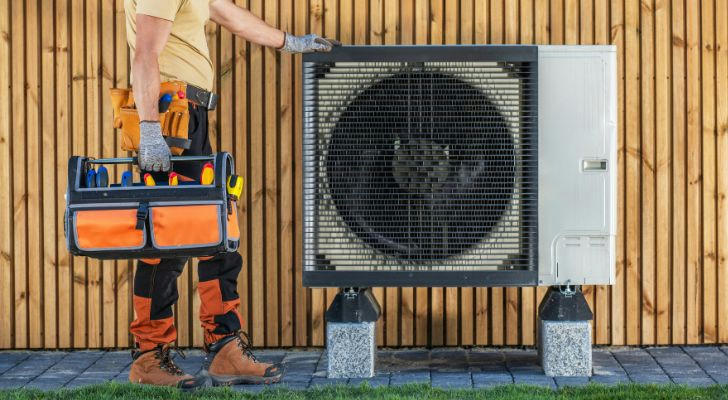The daily life of a skilled HVAC technician
A skilled HVAC technician plays a crucial role in keeping buildings comfortable, safe, and energy-efficient. While many people only think about heating or cooling systems when they fail, HVAC professionals are constantly working behind the scenes to ensure those systems run smoothly. Their workday is filled with challenges, variety, and problem-solving—making it one of the most dynamic skilled trades out there.

Starting the Day: Tools, Trucks, and Job Briefings
Most HVAC technicians start their day early, often around 7 a.m. The day begins at the shop, office, or service center where they pick up job orders, load parts, and inspect their service vehicles.
- Equipment Check: Multimeters, gauges, pipe wrenches, refrigerant tanks, and safety gear must all be accounted for.
- Job Planning: Technicians may receive several calls ranging from routine maintenance to emergency breakdowns. Prioritizing jobs efficiently is critical.
- Navigation: Many rely on mobile dispatch apps to route them to job sites, track inventory, and update work logs in real-time.
Well-organized prep time ensures a smoother, more productive day ahead.
On-Site Work: Diagnosing and Solving Problems
Once at a job site—whether it’s a private residence, office building, or retail store—the technician’s role becomes highly hands-on. Every visit is different and may involve:
- Routine Maintenance: Cleaning coils, replacing filters, checking refrigerant levels.
- System Diagnostics: Investigating issues like poor airflow, strange noises, or thermostat malfunctions.
- Repairs and Replacements: Swapping out worn parts, fixing leaks, or recalibrating thermostats.
Technicians must interpret readings from tools such as pressure gauges and electrical testers, identify the root cause of an issue, and communicate solutions clearly to clients.
“HVAC is part science, part puzzle-solving,” says Bryan, a licensed technician from Denver. “Every system is a little different, and you’re constantly adapting.”
Working With Clients: Communication and Trust
Beyond technical skills, strong communication is a vital part of the job. HVAC technicians often deal with customers who are stressed due to malfunctioning systems—especially during extreme heat or cold.
- Explaining the Issue: Technicians must break down complex problems in simple terms.
- Recommending Solutions: Offering cost-effective options while considering long-term performance and energy efficiency.
- Building Trust: Clean, respectful work and honest advice go a long way toward building repeat business and referrals.
Many companies now train technicians in soft skills and customer service to complement their technical expertise.
Physical Demands and Safety Measures
HVAC work can be physically demanding. Technicians often climb ladders, crawl in tight spaces, or work outdoors in all weather conditions. Common challenges include:
- Confined or Hot Spaces: Attics, rooftops, or mechanical rooms require resilience and situational awareness.
- Heavy Equipment: Installing furnaces or compressors often requires teamwork and proper lifting techniques.
- Electrical and Gas Safety: Strict adherence to OSHA and local code standards is non-negotiable.
A well-trained technician balances speed with caution, using personal protective equipment (PPE) and regularly updated safety procedures.
Afternoon Calls: Variety Keeps It Interesting
After lunch, the schedule may include new installations, scheduled service calls, or urgent repair requests. Technicians must be flexible, as weather or client cancellations can shift priorities.
- Installation Work: Includes ductwork, thermostats, and full HVAC units—sometimes as part of large renovation projects.
- Emergency Repairs: In peak seasons (summer and winter), calls increase dramatically. The ability to think on one’s feet is essential.
- Paperwork & Reporting: Many techs complete digital service reports, customer invoices, and compliance documentation before the end of each visit.
No two days are exactly alike, and this variety keeps the job fresh and engaging.
Wrapping Up: Debrief and Prep for Tomorrow
By late afternoon or early evening, technicians return to the office or check in remotely to:
- Log completed jobs and submit service reports
- Restock vehicle inventory and return unused parts
- Prep for the next day's calls
In larger teams, debrief sessions help troubleshoot recurring issues and discuss customer feedback. For those in self-employed or contractor roles, evenings may also include invoicing or appointment setting.

More Than Just a Job: Career Satisfaction and Progression
Being an HVAC technician offers more than just technical satisfaction—it’s a respected career with long-term potential:
- High Demand: The U.S. Bureau of Labor Statistics projects 6% job growth through 2032.
- Good Pay: The median salary for HVAC techs is around $60,000, with higher earning potential for those with certifications or specializations.
- Advancement Paths: From field technician to supervisor, instructor, or independent business owner.
Many technicians say what they love most is the feeling of helping people and solving real-world problems.
